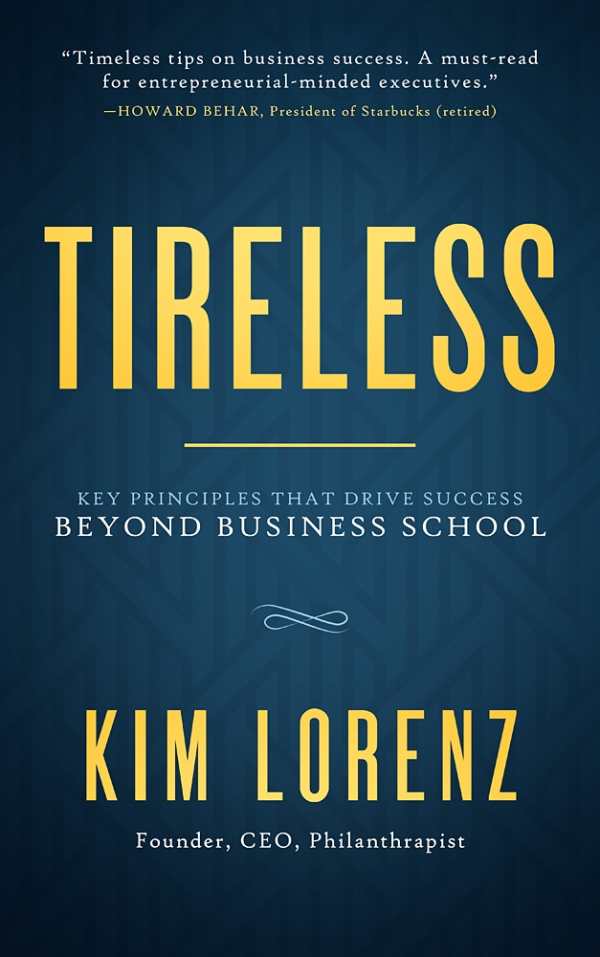
Tireless
Key Principles that Drive Success Beyond Business School
Relatable and unique, the messages of Tireless resonate with current business theory, showing that success really is possible when you put your mind to it.
Kim Lorenz’s career self-help book, Tireless, focuses on business opportunities that can be converted into profitable, novel business streams. Its timeless advice is bolstered by personal examples.
In places presented as lands of opportunity, it is suggested that anyone with a good idea can make it, but this book draws upon research that indicates that good ideas are not always executed well. Lorenz, a serial entrepreneur, aims to counter such trends, first by sharing a chronological narrative of the business opportunities he recognized and acted upon. Generalized guidelines are drawn from his experiences, furthered by the notion that opportunities are all around.
The first six chapters cover Lorenz’s first entrepreneurial venture, a tire company. They illustrate how he recognized the opportunity, acted upon it, confronted obstacles, and worked toward selling the business. Following chapters are about decision making and parlaying opportunities into action, with many examples of adverse situations that became serendipitous because of entrepreneurial grit and positive attitudes. Later in the book, spotting second opportunities is also addressed; the book encourages taking advantage of them, too.
Many of the examples used to back up the book’s advice involved an element of luck. In one, a larger company sues Lorenz’s much smaller company, but drops the suit; it later buys Lorenz’s company. At the same time, the attorney defending Lorenz defers payment. The probability of replicating such fortunes is slim.
The work segues into advice for moving from spotting opportunities to considering entire projects and coming up with optimal solutions to address complete problems; its notion of this, which it deems as focus, is broad, rather than involving narrowed concentration. The nuances of aligning disparate departments and concerns to focus on a common cause are glossed over, as is the important notion of leveraging personal connections—a key ingredient, but one that is only mentioned in passing.
Later chapters are about gratitude, giving back, and paying it forward. Each chapter illustrates qualities important to success, including sticking to ideas, honesty, commitment, and hard work. Especially in the later chapters, personal stories take up more space than does exploring overall themes. In most cases, the advice that arises from the book’s examples is clear, though in a few chapters, the takeaway is harder to discern.
Chapters are short, quick reads, their writing engaging and active. Anecdotes hold interest, and the resultant advice is timeless. Because the book draws examples from Lorenz’s personal life, it avoids the pitfalls of other titles that use the same recycled anecdotes and examples; this personalized work is deep and authentic, and its addresses are direct. No statistical analysis is shared to validate the book’s claims, though.
Relatable and unique, the messages of Tireless resonate with current business theory, showing that success really is possible when you put your mind to it.
Reviewed by
Muhammed Hassanali
Disclosure: This article is not an endorsement, but a review. The publisher of this book provided free copies of the book and paid a small fee to have their book reviewed by a professional reviewer. Foreword Reviews and Clarion Reviews make no guarantee that the publisher will receive a positive review. Foreword Magazine, Inc. is disclosing this in accordance with the Federal Trade Commission’s 16 CFR, Part 255.
